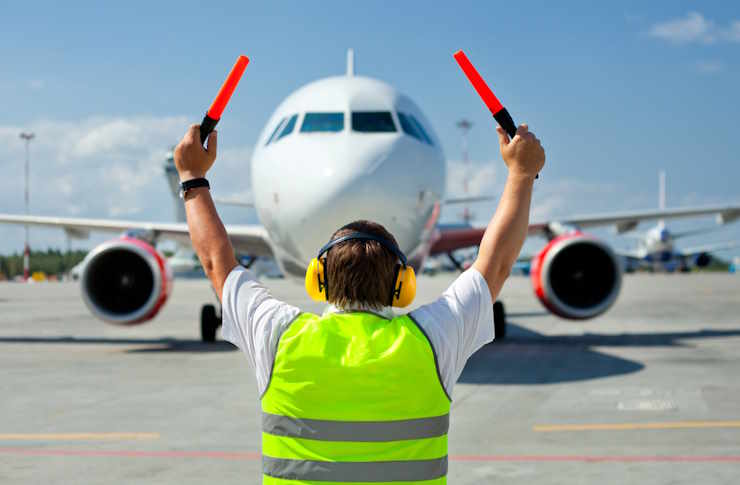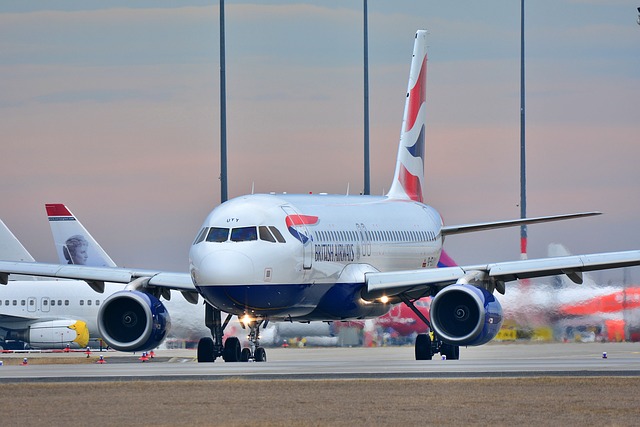Aviation Training in the Netherlands: Unlocking Career Pathways
Many individuals in the Netherlands may not realize that proficiency in English can significantly enhance career pathways in aviation. The aviation sector is expanding, with a variety of roles available that require communication in English. Understanding the specific roles and conditions within this field can provide valuable insights for those considering a future in aviation.

Aviation training in the Netherlands encompasses a wide range of programs designed to prepare individuals for various roles within the industry. From pilot training and air traffic control to aircraft maintenance engineering and cabin crew preparation, the Dutch aviation sector offers comprehensive educational pathways that meet international standards. The country’s strategic location, advanced facilities, and multilingual environment make it an attractive destination for both domestic and international students pursuing aviation careers.
Understanding the Aviation Sector in the Netherlands
The Netherlands hosts one of Europe’s busiest aviation hubs, with Amsterdam Airport Schiphol serving as a major international gateway. This prominent position has fostered a thriving aviation ecosystem that includes airlines, maintenance organizations, aerospace manufacturers, and supporting service providers. The sector employs thousands of professionals across various specializations, creating ongoing demand for qualified personnel. Training institutions in the Netherlands maintain close partnerships with industry stakeholders, ensuring that educational programs align with current operational requirements and technological advancements. Students benefit from access to modern simulation facilities, practical training opportunities, and exposure to real-world aviation environments. The Dutch aviation sector emphasizes safety, efficiency, and innovation, values that are deeply embedded in training curricula. Understanding this landscape helps prospective students identify which career paths align with their interests and aptitudes.
Importance of English Proficiency in Aviation Careers
English serves as the universal language of aviation, making proficiency essential for anyone pursuing a career in this field. International Civil Aviation Organization (ICAO) standards require pilots, air traffic controllers, and other operational personnel to demonstrate specific levels of English language competency. In the Netherlands, where aviation operations involve constant international communication, strong English skills are not merely advantageous but mandatory for most positions. Training programs incorporate English language assessment and development, recognizing that effective communication directly impacts safety and operational efficiency. Aviation English extends beyond general language skills, encompassing specialized vocabulary, standardized phraseology, and the ability to communicate clearly under pressure. Many Dutch training institutions offer language support alongside technical instruction, helping students from diverse linguistic backgrounds meet industry requirements. The multilingual nature of Dutch society provides an additional advantage, as many professionals work comfortably in multiple languages while maintaining English as the primary operational language. Prospective aviation professionals should assess their English proficiency early and pursue additional language training if needed to meet ICAO Level 4 or higher standards.
Roles and Conditions in the Growing Aviation Industry
The aviation industry offers diverse career opportunities, each with distinct training requirements, responsibilities, and working conditions. Commercial pilots undergo extensive training that includes theoretical instruction, simulator sessions, and flight hours, typically spanning several years before obtaining necessary licenses. Air traffic controllers complete rigorous programs focusing on spatial awareness, decision-making, and communication skills, followed by on-the-job training at specific facilities. Aircraft maintenance engineers pursue technical education combining classroom learning with hands-on experience, leading to certifications that enable them to ensure aircraft airworthiness. Cabin crew members receive training in safety procedures, customer service, and emergency response, preparing them for the unique challenges of working at altitude. Ground operations personnel, including ramp agents, dispatchers, and operations coordinators, support the complex logistics that keep flights running smoothly. Working conditions vary significantly across roles, with pilots and cabin crew experiencing irregular schedules and time away from home, while maintenance and ground staff typically work in shifts at airport facilities. The industry demands high levels of responsibility, attention to detail, and adaptability, as aviation operates continuously and requires personnel who can perform consistently under various circumstances. Career progression pathways exist within most specializations, allowing professionals to advance into supervisory, training, or management positions as they gain experience.
Training Pathways and Educational Institutions
Several institutions in the Netherlands provide aviation training across different specializations. Flight training organizations offer integrated and modular programs leading to commercial pilot licenses, with options for additional ratings and type-specific training. Technical colleges and universities deliver aircraft maintenance engineering programs that combine theoretical knowledge with practical workshops. Specialized academies focus on cabin crew training, air traffic control preparation, and aviation management education. The duration and structure of programs vary depending on the career path, with pilot training typically requiring 18 to 24 months for integrated courses, while maintenance engineering programs may span three to four years. Many institutions maintain approval from relevant aviation authorities, ensuring that qualifications are recognized internationally. Prospective students should research accreditation status, training facilities, instructor qualifications, and industry connections when evaluating programs. Some institutions offer pathway programs that allow students to progress from foundational courses to advanced certifications within a structured framework. The Dutch education system also supports vocational training through apprenticeship models, where students combine classroom learning with employment at aviation companies, gaining practical experience while earning qualifications.
Practical Considerations for Aspiring Aviation Professionals
Pursuing aviation training requires careful planning and consideration of various factors. Medical fitness is a prerequisite for many aviation roles, with pilots and air traffic controllers needing to meet specific health standards verified through regular examinations. Financial planning is essential, as aviation training represents a significant investment. Prospective students should explore funding options, including personal savings, educational loans, and potential sponsorship opportunities from airlines or organizations. Realistic expectations about career timelines are important, as building sufficient experience and qualifications to secure desired positions often takes several years beyond initial training completion. The competitive nature of certain roles, particularly commercial pilot positions, means that graduates may need to accumulate experience through entry-level positions before advancing to preferred career opportunities. Networking within the industry, maintaining current knowledge of regulatory changes, and pursuing continuous professional development enhance long-term career prospects. Understanding visa and work authorization requirements is crucial for international students planning to train or work in the Netherlands, as regulations govern both study and employment in the aviation sector.
Career Outlook and Industry Developments
The aviation industry continues to evolve, influenced by technological advancements, environmental considerations, and changing operational models. Automation and digital technologies are transforming various aspects of aviation, creating demand for professionals with technical skills and adaptability. Sustainability initiatives are driving interest in alternative fuels, more efficient aircraft designs, and operational practices that reduce environmental impact. These developments create opportunities for aviation professionals who combine traditional expertise with knowledge of emerging technologies and practices. The industry’s cyclical nature means that demand for personnel fluctuates based on economic conditions, geopolitical factors, and unforeseen events. However, the fundamental need for air transportation and the ongoing retirement of experienced professionals suggest continued opportunities for well-trained individuals entering the field. Staying informed about industry trends, maintaining flexibility regarding career paths, and committing to lifelong learning position aviation professionals for sustained success in this dynamic sector.
Pursuing aviation training in the Netherlands offers access to quality education, industry connections, and diverse career pathways within a well-established aviation ecosystem. By understanding sector requirements, developing necessary skills including English proficiency, and making informed decisions about training programs, aspiring professionals can build rewarding careers in this challenging and essential industry.




